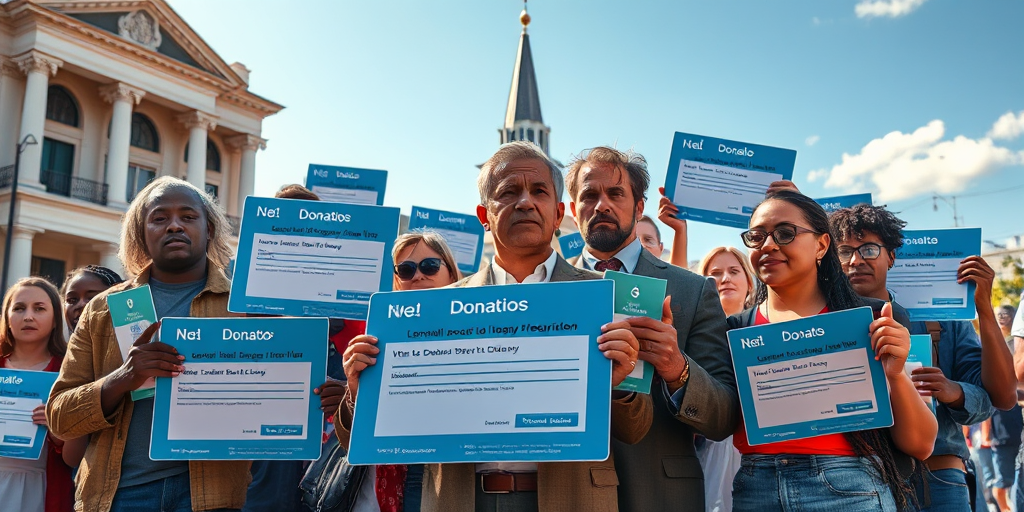Exclusionary Policies in Tennessee Private Schools: A Complex Battle for Inclusion
In Tennessee, the landscape of education for LGBTQ+ students and students with disabilities has become a contentious issue, sparking significant debate. Tennessee’s Education Freedom Scholarship program, designed to provide state-funded vouchers to private schools, has come under scrutiny for its exclusionary policies that disproportionately affect these groups. Despite the program’s intention to broaden educational opportunities, it has raised critical concerns about discrimination, leaving many questioning its efficacy and ethics.
Voucher Program and the Principle of Inclusion
At the heart of the controversy is the Tennessee Education Freedom Scholarship program, which offers state-funded vouchers to over 170 private schools, totaling more than 241 eligible institutions. Publicly, many of these schools claim non-discriminatory policies, stating they do not discriminate based on racial, sexual, or disability-related grounds. Yet, a deeper dive into the policies of these schools paints a different picture, as many continue to exclude students by invoking religious beliefs and citing limited resources.
Chris Sanders, Executive Director of the Tennessee Equality Project, voices a stark criticism, arguing, “Taxpayers are essentially subsidizing discrimination in private schools through these vouchers. This isn’t just an issue of funding, but also a real-world impact on vulnerable students who are barred from obtaining the education they deserve.”
Impact on Students with Disabilities
Under current legislation, students with disabilities enrolling in private schools via the voucher program forfeit critical rights guaranteed by the Individuals with Disabilities Education Act (IDEA), which only applies to public schools. Although approximately half of the voucher-eligible schools have some form of accommodation policy, many retain full discretion over admissions, often choosing exclusion driven by lack of staffing or necessary resources.
Nona Hunt, a student support specialist at Concord Academy in Memphis, highlights the challenges: “We’re very small, lacking the kind of resources needed for certain disabilities. While we aim to broaden our support scope, current limitations hinder us substantially.”
To complicate matters, an amendment proposed to the voucher bill aiming to prevent discrimination against disabled students was ultimately rejected, reflecting ongoing divisions among lawmakers on how to address these pressing issues effectively. Representative Chris Hurt, a vocal supporter of more inclusive policies, underscored the emotional toll of such exclusionary practices on both students and their families.
A Landscape of Legal Ambiguities and Frustrations
The situation is equally concerning for LGBTQ+ students. More than 57 private schools involved in the voucher program openly maintain anti-LGBTQ+ policies, some threatening disciplinary actions, including expulsion, for students who defy gender norms. Such policies include barring same-sex couples from school activities and policing student social media for LGBTQ+ advocacy.
Sanders highlights the potential dangers of these policies, noting, “These practices put immense pressure on students, forcing them to hide their identities. This dynamic isn’t only distressing; it raises suicide risks and divides focus from education to survival.”
Statements commonly arising from Christian schools refer to traditional religious beliefs to justify these positions, explicitly stating marriage as a divine union between a man and a woman and identifying gender solely based on biological sex at birth.
Pockets of Inclusivity
Despite the prevalence of exclusion, certain private schools stand out for their inclusive principles. Emi Canahuati, whose daughter attended Abintra Montessori School and now studies at Templeton Academy, stresses the importance of finding environments that uphold acceptance and diversity. “Choosing schools that embrace LGBTQ+ identities aligns with our family’s values,” she explains. Such institutions prioritize ensuring students feel seen, valued, and supported in exploring their identities.
Furthermore, some schools, like Lausanne Collegiate School in Memphis, extend LGBTQ+ support through student organizations, such as Gay/Straight Alliances, offering safe spaces for dialogue and community building.
Community and Future Implications
As the debate continues, it brings crucial attention to the broader societal quest for equality and inclusion, particularly in educational environments. As lawmakers weigh the benefits of educational choice against stark realities of discrimination and exclusion, the community remains at the core of these deliberations, representing the voices of residents, stakeholders, and students themselves.
The ongoing narrative in Tennessee mirrors larger national conversations around equal access and anti-discrimination laws in education. For Tennessee residents, this juncture presents both a challenge and an opportunity—to reimagine educational equity and foster an environment where all students, irrespective of identity or ability, can thrive.
With the Nashville Banner actively covering these developments, the importance of local independent journalism in keeping communities informed cannot be overstated. Residents are encouraged to remain engaged, informed, and vocal, advocating for policies that genuinely reflect inclusive education principles. Through ongoing discourse and legislative advocacy, the hope remains that Tennessee can become a model of equitable education for all.







